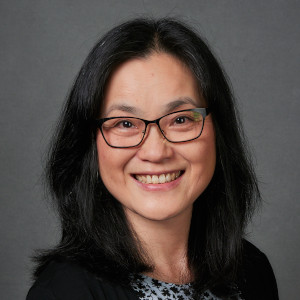
14 Sep An Interview with Xing-Jian Lou, NHI/NCI

Dr. Lou is a Program Director in the Small Business Innovation Research Development Center at the National Cancer Institute. She manages SBIR & STTR awards, as well as actively engages in developing targeted solicitations, guiding small businesses to develop applications and facilitating interaction between awardees and potential investors and partners. Read her full bio.
Interview with Xing-Jian Lou, NHI/NCI
Q: What is your responsibility when selecting and/or working with these early stage companies?
A: NCI SBIR Program Directors do not play a role in reviewing the SBIR/STTR applications. That process is done at the NIH Peer Review panel. NCI SBIR Program Directors, however, are open to talk to small businesses who are interested in applying for an NCI SBIR or STTR award. We encourage small businesses to reach out to us even before they start their application preparation. We have many outreach events planned throughout the year to share information about the program, and we also provide one-on-one help for applicants in their application/resubmission journey.
Q: What are you specifically looking for in these companies?
A: We are looking for innovative technologies that can address unmet needs in the cancer detection, diagnosis, treatment, and prevention fields. The SBIR/STTR Omnibus grant solicitation, one of our biggest funding opportunities, is open to a wide range of cancer technologies, ranging from therapeutics to health IT. For the SBIR Contract solicitation, the topics are predetermined by NCI experts based on the institute’s priorities and industry needs.
Q: What does it mean for you to be responsible for Investor Initiatives?
A: I see the NCI SBIR Investor Initiatives as a bridge. We understand that the SBIR/STTR funding alone cannot help a small business advance from lab to market. NCI SBIR Investor Initiatives provides opportunities for SBIR- and STTR-funded companies to present their technologies at industry-leading events like PMWC and also the connections necessary for future partnership or investment that could carry them to commercialization.
Q: What are winning teams – are they predominantly promising because of the technological or potential application aspect they are providing, or is it based on the complete package that they deliver including a “winning team” composition”?
A: Having an innovative technology is very important. A winning team in my opinion, however, takes more than just technological excellence. A winning team for me is one with a good balance of (1) innovative technology with strong commercial potential, (2) right personnel with expertise to advance the research and development (R&D), and (3) capabilities to attract and maintain necessary resources to support the R&D into commercialization.
Q: Does your role predominantly focus on selecting companies, or are you also part of an advisory team during the early phase of the company and in such function help guide them on strategic and tactical decision making?
A:
Essentially, there are three stages of support. The first stage is when applicants come to us prior to applying for SBIR/STTR funding. NCI SBIR has a team of program directors that can provide guidance and advice to applicants, and we also recently launched the Application Assistance Program that is designed to support applicants who have never received an SBIR or STTR grant from the NIH.
The second stage is the actual provision of funding, through SBIR/STTR grant and contract. The third stage is providing programs and initiatives that can guide SBIR- and STTR-funded small businesses through their commercialization journey beyond SBIR funding. The programs include:
- Investor Initiatives: provides opportunities for companies to present their technologies at investor events and to network with potential investors and strategic partners.
- I-Corps at NIH: 8-week entrepreneurship training program designed specifically for SBIR- and STTR-funded companies in the biotech fields.
- CEO Roundtable: peer-to-peer networking and mentoring program for SBIR- and STTR-funded companies.
- Commercialization Workshops: Biennial two-day workshop focusing on resources necessary to accelerate commercialization efforts. Companies get a chance to speak one-on-one with their program officers and invited speakers from federal and private organizations including FDA, CMS, and BARDA.
Q: Can you share some exciting success stories of early stage businesses you have worked with that have now grown into independent, fully functional companies?
A:
There are many examples of companies that have gone through that journey. We’ve recently published an Economic Impact Study on Phase II projects funded from FY 1998 to FY 2010. The Study shows that the awards have generated $26.1 billion in total economic output nationwide. So we have many examples. Here are some recent successes from precision medicine companies in my portfolio:
- Isoplexis
- Received SBIR funding to develop an instrument to evaluate the quality of CAR-T cells before they are administered to the patient.
- The technology will inform oncologists of patient response to a personalized CAR-T cell therapeutic and also of potential severe toxicities before the symptoms arise.
- This instrument is currently in the clinical testing stage of development.
- They recently completed a $25 million Series C.
- Personal Genome Diagnostics
- Received SBIR funding to develop testing features of their elio products.
- Bioinformatics kit detects single nucleotide variants in more than 30 genes, insertions and deletions in the genes, and more.
- Tests have been CE marked and are available for clinical use in Europe.
- Received $75 million Series B fund in 2018.
Q: Are there some exciting new technologies that show huge promise in expediting/accelerating the field of precision medicine? What in your assessment are some of these technologies holding such potential?
A: There are so many companies in our portfolio developing exciting technologies, and as part of NCI SBIR Investor Initiatives, we sent some of our companies to PMWC to present their technologies. One of such companies was Abreos Biosciences, Inc. Abreos attended PMWC and received the Most Promising Company Award in 2018.
Abreos is developing and validating a point of care lateral flow immunoassay devices that can measure within minutes a quantitative measure of how much rituximab is present in a patient’s blood. The technology allows physicians to determine rituximab levels prior to their next infusion (point of care) and provides information on how the drug is being metabolized in the patient.






